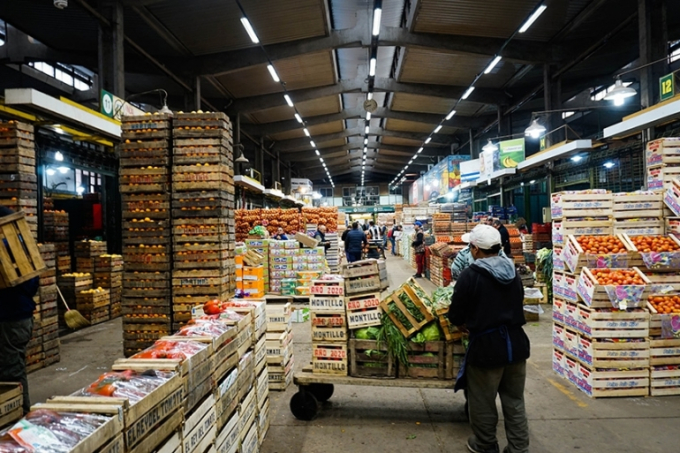November 28, 2025 | 01:04 GMT +7
November 28, 2025 | 01:04 GMT +7
Hotline: 0913.378.918
November 28, 2025 | 01:04 GMT +7
Hotline: 0913.378.918

The cost in pesos of imported produce such as bananas in Argentina recently spiked because importers typically pay in dollars.
Inflation is hitting just about everyone's wallet in the supermarket.
Terrence Todd, who we found shopping at the Oakley Kroger, said for him "milk, bread, meat, pretty much all the essentials are up."
Mary Wright agreed. "The price of everything is going up," she said.
Dr. Shelley Kirk, a Cincinnati nutritionist, said "I think there's sticker shock for many families."
But Kirk says people can lower their bills by shopping with with these tips for saving at the store:
Make a list, check it twice
"You want to make a list before you go," she said, walking through Cincinnati's Clifton Market. "You want to figure out your meals in advance."
Kirk says it's important for people to check their cupboards before leaving home, so they don't buy items they already have.
Another tip: "don't go to the grocery store with an empty stomach because that's going to open the door to a lot more impulse buying," she said.
Avoid pre-cut fruits and vegetables
Kirk suggests skipping pre-sliced fruits and vegetables, which are often three times the price of whole apples or melons.
"With pre-cut fruits and veggies, you think this is a time-saver, but look at the cost," she said.
Buy meat that you can extend for days
Kirk says unless it is a special occasion, skip expensive steak dinners. Many cuts of steak are now $15 to $20 a pound.
"When people think of a meal and its center is steak, that is where you go off your budget," she said.
Instead, she says, buy less expensive cuts of beef that can be used in multiple meals.
"Stretch the meat that you do have," she said. "So whether it's in a chili or stew or soup, it can be used in multiple meals."
Kirk says chili, made with ground beef, beans, tomato sauce, and onions, costs less than $10 for a large portion.
"You can actually make a Sloppy Joe on a bun with it," she said. "You can have it as a taco, you can use chili in a variety of ways."
Say no to sugary snacks
Kirk believes it's best to avoid shopping with children. She claims sugary snacks are displayed to tempt them.
"They see things at eye level and these are often not nutritious for you, and overpriced as well," she said.
Kirk also suggests that parents give their kids water instead of sugary juice boxes.
"You can bypass the juice boxes and save a bundle," she said.
Look for rice and pasta recipes
Want 1980s prices? Kirk says to look for recipes that use rice or pasta, which still cost pennies per serving.
"Pasta is a staple and it's affordable, and what you put on the pasta is what's going to make it healthy," she said.
Use old fashioned money-saving tricks
Finally, she says shoppers should:
Use coupons, both old-fashioned paper and digital
Buy store brands, when it is essentially the same thing
Stock up when things are on sale
"And that's going to be a money saver," she said.
That way, you can counter those inflationary price hikes, and you don't waste your money.
(Aljazeera)

(VAN) A new study reveals how the simultaneous effects of ocean acidification, salinity and loss of oxygen are making the world more fragile.

(VAN) Hopes are growing that the creation of the first 3D turkey gut model could be a turning point in the battle against the virulent blackhead disease.

(VAN) Tyson, America’s biggest meat supplier, plans to shutter one of its largest beef processing plants as the industry continues to struggle with low cattle supplies and political pressure from Washington.

(VAN) New FAO study shows how digital solutions are empowering farmers and fishers to prevent losses and build resilient agrifood systems.

(VAN) Brazil's COP30 presidency pushed through a compromise climate deal on Saturday that would boost finance for poor nations coping with global warming but that omitted any mention of the fossil fuels driving it.

(VAN) Poultry farmers in the UK have been warned that they could face one of the worst winters yet for bird flu.

(VAN) Prices of main-crop paddy have risen sharply, with jasmine rice hitting 16,100 baht per tonne — the highest level in years.